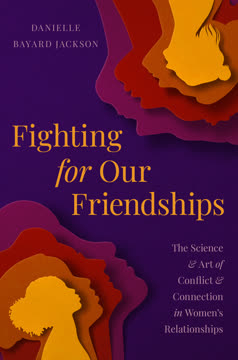Key Takeaways
1. Female Friendships are Complex, Powerful, and Essential
Complicated (adj.): consisting of many interconnecting parts or elements; intricate.
Intricate connections. Female friendships are inherently complex, characterized by deep intimacy and emotional investment, making them both incredibly rewarding and uniquely fragile. This intricate nature means they are susceptible to shifts and misunderstandings, often leading to more frequent "breakups" compared to male friendships. The author's personal experience of a college friendship dissolving due to unspoken grievances highlights this delicate balance.
Wellness essential. Despite their fragility, strong female friendships are crucial for overall well-being, offering significant physical, mental, and emotional benefits. Research from Harvard's longest-running happiness study identifies quality relationships as the greatest factor in life satisfaction. Specific benefits include:
- Lower cortisol (stress hormone) levels
- Better heart health and decreased dementia risk
- Increased emotional support and career advancement
- Greater satisfaction in romantic relationships and improved emotion regulation
Beyond "fluffy." Historically, female friendships have been dismissed as "fluffy" or "women's work," lacking the gravitas of other relationships. However, their profound impact on identity, support, and even collective liberation (as an "act of resistance" against oppressive systems that seek to divide) underscores their serious importance. Understanding and fighting for these bonds is not just personal, but a vital step towards a more connected and supportive world.
2. The Three Affinities Reveal Friendship's Mechanics
By definition, female friendship is complicated.
Unspoken rules. Female friendships often operate on a complex "girl code" of unspoken laws, making navigation feel like a minefield where missteps can lead to silent changes and emotional distance. To demystify these dynamics, the author introduces the "Three Affinities of Female Friendship": Symmetry, Secrecy, and Support. Understanding these principles provides a framework for why friendships thrive or falter, offering language to describe underlying tensions.
Symmetry in action. The Affinity of Symmetry encompasses feelings of sameness, equality, and reciprocity. Women tend to prioritize perceived similarity in areas like education, disposition, and humor, which fosters trust and connection. However, shifts in life stages (marriage, motherhood, new beliefs) can challenge this sameness. Equality is vital, making competition or criticism feel like betrayals, while reciprocity ensures mutual effort and prioritization, preventing one friend from feeling like the sole "giver."
Secrecy and Support. The Secrecy Affinity revolves around mutual sharing and exclusivity, creating a "vault" of intimate, protected vulnerabilities that build loyalty and alliances. Violations occur when sharing feels one-sided, or when big news is shared with others first, threatening the unique bond. The Support Affinity highlights women's high expectations for emotional help and solidarity, often exceeding those for men. The "should know" myth, where friends are expected to intuit needs without explicit communication, frequently leads to misunderstandings and disappointment.
3. Healthy Conflict is a Pathway to Platonic Intimacy
It’s not conflict itself that ends relationships—it’s the outcome from the conflict.
Inevitable clashes. Conflict is an unavoidable and even necessary part of any deep relationship, especially in intimate female friendships. While many associate conflict with drama and negativity, healthy disagreements serve as crucial opportunities to address needs, solve problems, and ultimately deepen bonds. The author's regret over a friendship lost due to an unresolved misunderstanding underscores the cost of avoiding these essential conversations.
Fragile yet deep. Female friendships are often more fragile than men's, with women reporting more "prior friendships" and a lower tolerance for perceived violations. This sensitivity stems from the high expectations women place on their close relationships, particularly regarding reciprocity and self-disclosure. When these high standards are unmet, or when minor issues are magnified by attributing them to character flaws, friendships can quickly dissolve.
From chemistry to intimacy. True platonic intimacy goes beyond initial chemistry or surface-level closeness; it's forged over time by navigating challenges and allowing authentic selves to emerge without fear of rejection. Healthy conflict, characterized by:
- Ownership and apology
- Collaborative problem-solving
- Respect for boundaries
- A focus on impact over blame
becomes a prerequisite for this deeper connection, fostering understanding and resilience.
4. Conflict Avoidance Harms Friendships and Ourselves
If you’re continually self-abandoning for the sake of your friends’ comfort, you will never be fully known.
The cost of silence. Many women, like the author in her friendship with Gina, suppress their anger and avoid confrontation, leading to resentment, passive-aggression, and emotional distance. This avoidance is often rooted in a complex interplay of factors, including our relationship with anger, societal gender biases, and people-pleasing tendencies. The internal "cost" of hiding true feelings is significant, leading to emotional exhaustion and a lack of genuine connection.
Gendered expectations. Societal norms heavily influence women's approach to conflict. Women are often conditioned to suppress anger, viewing it as a "loss of control" rather than a productive emotion, unlike men who may use it to exert power. Furthermore, benevolent gender stereotypes—that women should be loyal, nurturing, likable, and empathetic—can inadvertently encourage conflict avoidance. The fear of being perceived as a "bad friend," "uncaring," "unlikable," or causing "harm" can override the need to voice personal needs.
People-pleasing trap. The desire to please others, to say "yes" when one wants to say "no," creates a cycle of "corrupted information" in friendships, eroding trust and preventing authentic self-expression. This self-abandonment, while seemingly preserving peace, ultimately leads to unsatisfying relationships and prevents the experience of platonic intimacy. Recognizing the physical and emotional toll of avoidance is the first step toward reframing conflict as an opportunity for growth and self-preservation.
5. Recognize and Disarm Relational Aggression
The key to sophisticated stealth is to hit your target without looking like the bad guy.
Covert warfare. While overt aggression is often associated with men, women frequently engage in "relational aggression"—a covert form of harm that targets relationships. This "sophisticated stealth" minimizes risks to the aggressor while inflicting psychological damage through tactics like:
- Gossip
- The silent treatment
- Exclusion
- Public embarrassment
These behaviors aim to control, balance perceived injustices, protect alliances, or elevate status, often stemming from insecurity or a lack of healthy communication skills.
Rules of the game. Sophisticated stealth operates under specific "rules" to maintain an appearance of cooperation while causing harm. Perpetrators use veiled insults ("Bless her heart"), deny their actions when confronted (gaslighting), and leverage gossip to plant seeds of doubt, often framing themselves as "virtuous victims." These tactics are particularly effective because they are hard to detect and challenge, leaving the target feeling confused and isolated.
Deprogramming and insulating. To counter relational aggression, it's crucial to deprogram our minds from these learned behaviors and insulate ourselves from their impact. This involves:
- Questioning our own motives before engaging in gossip or exclusion.
- Calling out aggressive behavior directly and factually.
- Overlooking minor provocations to deny the aggressor satisfaction.
- Withdrawing from group dynamics that foster such behavior.
By understanding these tactics, we can protect our emotional safety and foster environments of genuine respect and trust.
6. Navigate Common Conflicts with Empathy and Strategy
We reduce her to the issue she presents, and before we know it, she becomes “the negative friend,” “the clingy friend,” “the flaky friend”—but there may be more to the picture than we realize.
Beyond the label. When conflicts arise, it's easy to reduce friends to their problematic behaviors, labeling them as "the flaky friend," "the gossip," or "the love-obsessed friend." However, this oversimplification overlooks the underlying reasons for their actions, preventing a compassionate and effective response. Understanding the "behind-the-scenes" factors allows for a more empathetic approach, fostering connection rather than immediate judgment.
Understanding the "why." Each common friendship conflict often stems from deeper issues:
- Flaky friends might struggle with ADHD, social anxiety, or disorganization, or simply not realize their inconsistency's impact.
- Non-reciprocating friends may have other life commitments, be unaware of social norms, fear rejection, or simply have a different definition of reciprocity.
- Gossips might be seeking to bond, battling insecurity, or simply bored.
- Love-obsessed friends could be influenced by patriarchal pressures, love addiction, or even an abusive relationship.
- Controlling friends often operate from fear, a lack of control in other life areas, or anxiety.
- Jealous friends may have a fixed mindset, viewing others' success as their own lack, or be hypersensitive due to past experiences.
- Newly changed friends are often experimenting with identity or navigating new priorities, which naturally reshuffles relationship dynamics.
Strategic responses. For each "friend type," the key is to move from assumption to curiosity, focusing on the impact of their behavior rather than their character. Strategies include:
- Mapping cause and effect for flaky friends.
- Making desires known for non-reciprocating friends.
- Modeling reform or redirecting for gossips.
- Being honest about impact for love-obsessed friends.
- Appealing to sensibilities or asking about fears for controlling friends.
- Calling out with curiosity and showing appreciation for jealous friends.
- Practicing parallel play and creating new memories for newly changed friends.
These approaches aim to foster understanding and collaborative problem-solving, preserving the friendship where possible.
7. Master the Art of Setting Boundaries and Apologizing
Expressing your boundaries is like giving your friends a page from the handbook on how to love you well.
Boundaries as guidance. Conflict often reveals new boundaries, highlighting areas where our sense of safety or comfort has been compromised. Instead of viewing boundaries as restrictive "no's," they should be seen as "affirmative boundaries"—invitations to friends to understand how to love us better. This involves packaging "no" as a "yes," clearly communicating preferences and the impact of their actions, rather than just listing what won't be tolerated.
The power of a sincere apology. When we are the ones who have caused harm, a sincere apology is crucial for restoring trust and moving forward. Defensiveness, blaming, or gaslighting only exacerbate tension. A genuine apology, as outlined by crisis management expert Molly McPherson, involves three key components:
- Ownership: Sincerely apologizing and accepting responsibility for the pain caused.
- Explanation: Providing context without blaming, showing concern and sympathy.
- Promise: Explaining how future actions will be different and following through.
This humble path to reconnection prioritizes care over ego, allowing for healing and renewed harmony.
Renegotiating terms. After conflict, friendships may require renegotiation. This could involve "recategorizing" a friend (adjusting expectations of their role) or navigating a "fake back" period—an awkward but necessary stage of re-engagement. The goal is not always to return to the "before times," but to find a new, sustainable rhythm that honors both individuals. This flexibility and willingness to adapt are vital for long-term friendship resilience.
8. Knowing When and How to Let Go is an Act of Self-Preservation
If you can’t say “She has my back” with full confidence, you might need to reevaluate.
The pain of parting. Friendship breakups are often more painful than romantic ones, challenging our self-esteem and disrupting our social fabric. Unlike romantic relationships, there's no clear cultural script for ending friendships, leading to ambiguity and prolonged grief. The fear of rejection, the loss of shared history, and the anxiety of a friend knowing our deepest vulnerabilities make letting go incredibly difficult, often causing us to stay in unhealthy dynamics longer than we should.
Signs it's time. While difficult, recognizing when a friendship no longer serves you is an act of self-preservation. Key indicators include:
- Staying solely due to shared history, not present enjoyment.
- A persistent lack of trust or feeling constantly on guard.
- Non-reciprocal effort, where one person sustains the relationship alone.
- A friend consistently dismissing or minimizing your feelings.
- Feeling inauthentic or disliking who you are when together.
When these signs emerge, it's crucial to acknowledge that the friendship's expiration date may be near, regardless of past affection.
Graceful exits. There are various ways to end a friendship, each with its own implications. The "fade-out" is a mutual, gradual drifting apart, ideal when both parties are ready. The "fake-out" involves sending mixed signals, hoping the friend will initiate the end, which is often confusing and disrespectful. "Fleeing the scene" or "ghosting" is abrupt and can be traumatizing, robbing the other person of closure. The "formal bow-out," a direct and compassionate conversation, is often the most respectful approach, focusing on your needs rather than vilifying the other person. This allows both individuals to move forward with clarity, even if it involves temporary pain.
9. Proactively Cultivate New, Resilient Friendships
We will always be having to make new friends.
Lifelong journey. Making friends isn't just for childhood; it's a continuous process throughout adulthood, especially as life transitions (new jobs, cities, parenthood) cause social networks to shift and shrink after our mid-twenties. The key is to develop proactive strategies for inviting new connections and deepening existing ones, rather than waiting for friendships to "just happen."
Strategic connection. Six actionable strategies can help adults find new friends:
- Go with who you know: Re-evaluate acquaintances (coworkers, neighbors) for deeper potential (multiplexity).
- Connect with a "concierge": Leverage well-connected individuals to expand your network.
- Become a "regular": Consistent presence in certain places (gym, coffee shop) fosters familiarity and rapport.
- Leverage technology: Use apps like Bumble For Friends to intentionally seek like-minded connections.
- "Bookend" events: Arrive early and linger after events to engage with others when the environment is conducive.
- Take yourself out on more dates: Pursue hobbies in high-traffic areas to meet people with shared interests.
Overcoming the fear of rejection by embracing connection as an identity, rather than a transactional act, is crucial for initiating these new bonds.
Beyond the "soulmate." Friendship exists on a continuum, from casual acquaintances ("weak ties" that boost mood) to a few "superclose" relationships (3-5, according to Dunbar's research). Instead of seeking one "platonic soulmate" who checks every box, cultivate a "Life Council" of diverse friends, each fulfilling unique roles. This abundance mindset, coupled with the understanding that resilient friendships require effort, time, and self-awareness (including attachment styles), sets the stage for truly meaningful connections.
10. Deepen Friendships Through Intentional "A.D.O.R.E." Practice
Investing in friendship is about so much more than random acts of kindness. In fact, it’s not random at all—it’s intentional.
Beyond surface-level. Turning acquaintances into deep, resilient friendships requires intentional effort beyond sporadic "nice" gestures. The "A.D.O.R.E." Practice provides a structured framework for cultivating richer relationships, making friends feel consistently seen, valued, and supported, and buffering against the strain of inevitable conflicts.
The A.D.O.R.E. framework:
- Appreciation: Actively verbalize gratitude and recognize your friend's full value, both for what they do and who they are. This builds positive regard and softens the ground for future difficult conversations.
- Desire: Openly express your desire to know them better and spend time with them, moving beyond romantic contexts. This makes friends feel wanted and special, reinforcing their worth in your life.
- Openness: Practice vulnerability, sharing your "beautiful mess" without fear of judgment. Create a safe space where friends can be their authentic selves, make mistakes, and challenge each other, fostering true authenticity.
- Reliability: Consistently keep your word and follow through on commitments, demonstrating trustworthiness. This builds the bedrock of trust, which is essential for navigating uncertainty and conflict.
- Experiences: Share diverse experiences in different settings, leveraging the "amplification effect" to deepen bonds. Join friends in their "happy places" and create new memories together, strengthening your connection through shared joy.
Intentional cultivation. By consistently applying the A.D.O.R.E. Practice, you move beyond passive hope and actively build the kind of healthy, supportive friendships that are truly worth fighting for. This intentional approach transforms relationships, fostering deep connections that can withstand life's challenges and bring immense satisfaction.
11. Self-Love is the Foundation for Loving Others
As soon as I grew more comfortable with who I am as a woman, I began to see other women as an extension of myself.
Inner work, outer impact. The author's personal journey reveals a profound truth: the ability to fully love and engage in friendships with other women is deeply intertwined with one's own self-love. When we harbor insecurities or fail to accept parts of ourselves, we often project those fears onto our female relationships, leading to withholding, defensiveness, or a reluctance to be truly seen. Embracing one's authentic self is the first step toward fostering genuine connections.
Embracing shared womanhood. Overcoming the urge to differentiate oneself with phrases like "I'm not like other girls" and instead embracing the commonalities of womanhood can be incredibly liberating. This shift allows for a deeper empathy and understanding, transforming fear of judgment into a sense of shared experience and support. The author's "Valentine's dinner" for her friends symbolizes this newfound freedom to express platonic love without embarrassment, a direct result of her growing self-acceptance.
Healing through connection. Female friendships offer a unique space for healing and affirmation. Through the eyes of other women, we can learn to see our own beauty, strength, and worth. Whether it's a friend offering practical help, patient listening, or simply a heartfelt compliment, these gestures contribute to a powerful feedback loop that reinforces self-love. By giving ourselves permission to both receive and freely express platonic love, we cultivate friendships that are not only worth fighting for but also instrumental in our personal growth and well-being.
Last updated:
Review Summary
Fighting for Our Friendships resonates with many readers, particularly women navigating adult friendships. Reviewers appreciate the practical advice, research-backed insights, and relatable anecdotes. The book offers strategies for conflict resolution, boundary-setting, and nurturing meaningful connections. Some found it especially helpful for those in their 20s and 30s. Critics noted gender stereotyping and a surface-level approach for older readers. Overall, the book is praised for its timely message on the importance of fighting for and maintaining female friendships, despite its occasional generalizations.
Similar Books
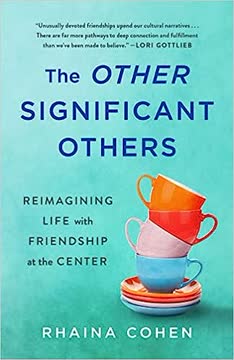
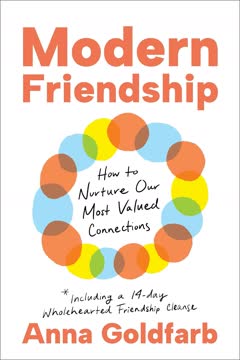
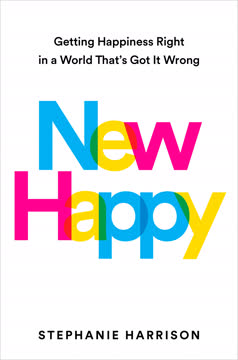
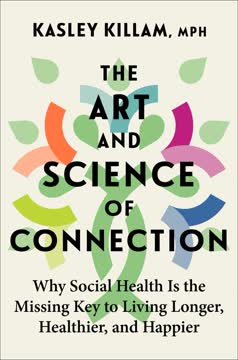

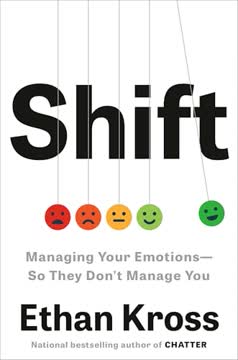

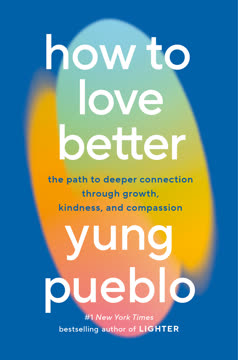


Download PDF
Download EPUB
.epub digital book format is ideal for reading ebooks on phones, tablets, and e-readers.
